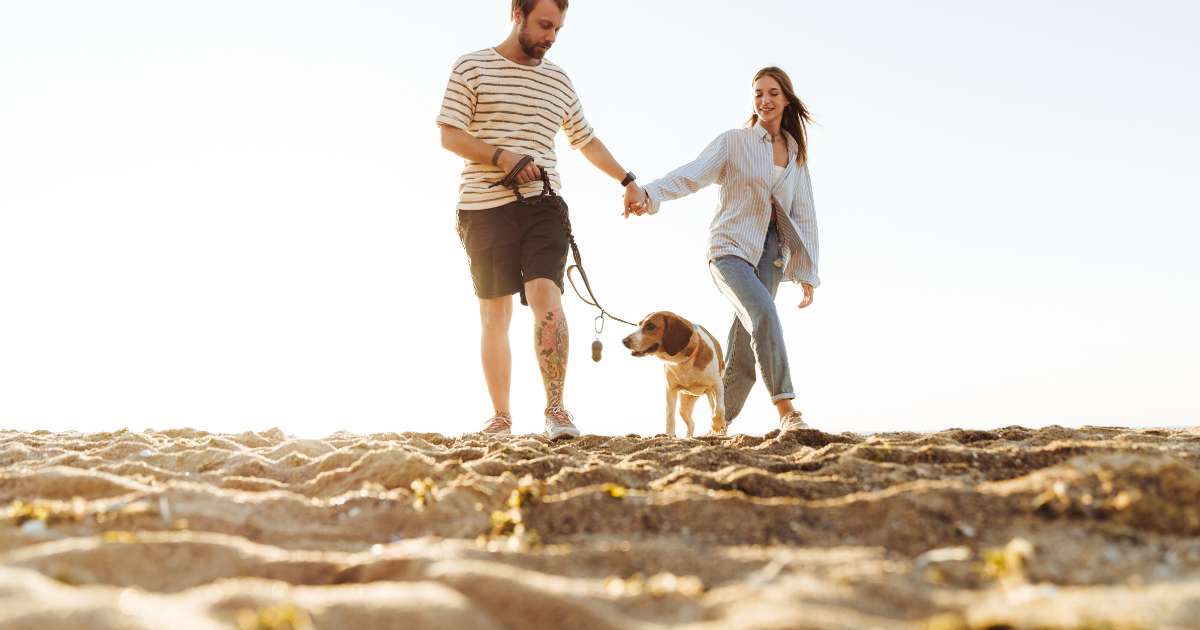Dating After Divorce
Video Summary
Divorce is a heavy subject, and navigating life after one can be confusing and emotional, especially when it comes to getting back into the dating pool. Join Master Certified Matchmaker Genevieve Gresset and Certified Dating Coach/Matchmaker Heather Drury as they discuss a recent divorcee’s distraught feelings, feeling “normal” again, and getting back into dating.
Video Transcript
Heather: Hello, Genevieve. So excited to be here with you again. How are you?
Genevieve: I’m good, thank you. How are you, Heather?
Heather: I’m doing really, really good. We’ve got a really wonderful letter to dive right into, and I’d love to see how we can help this person. So I’m just going to, you know, pull the Band-Aid off and let us dive in.
Heather: “I’m finally out, so I am sad?” So this writer says: “Finally got the courage to leave after ten years. This past weekend, I moved into my own apartment. Phase one: separate. It was so freeing, being out of that house, like weight lifted off of my shoulders. But then yesterday, once I was all unpacked and just sitting there, taking it all in. This wave of sadness came over me and I just cried and cried. I initiated this. I wanted this. So why am I so sad? I know it was the right thing to do. I have no friends or family near, to be honest. So I feel more alone than I ever have.” And she says in parentheses, “I have my two daughters.” “I feel like I’m starting from scratch at 40. How long did it take you to feel back to normal again? Any books, podcasts, groups anyone can recommend?” Wow, there it is.
Genevieve: Well, I can speak from a therapist point of view or from a woman who’s been there: it gets better. That’s the one thing that I say to everybody. Emotions and feelings are all temporary. Whether you have big highs and or deep down lows, everything is temporary. I think there’s often an element of guilt when you’re the one who initiated something as well, especially a breakup, and especially when children are involved. Often you’re sad for what could have been rather than what it was and being sad is is a healthy emotion. I’m always concerned when clients come to me and tell me that they have no feelings. That, to me,brings more alarm bells compared to people that are going through the grieving process. I think we have to remember that it is like a loss because it is a loss. You’re losing something that’s familiar. You’re losing your home, your marriage, your dreams, everything that you have spent so many years building up and creating. So I think it’s something that you should feel the pain. But if you’re stuck in that pain for too long, you need to seek help. You know, it’s okay to have waves of emotion. It’s okay to feel sad.
Genevieve: It’s okay to feel ecstatically happy and wanting to do cartwheels around the place. You know, there’s all sorts of different emotions that you’re going to feel going through this this type of breakup, and especially moving out. But also there’s exhaustion. You’ve just moved. You’ve got the emotional exhaustion, the physical exhaustion, the psychological exhaustion of going through what you’re going through. Often when you’re out of somewhere and out of a home that you’ve shared with someone where it hasn’t gone well and it could have been quite toxic, is you have this overwhelming sense of of relief as well, which is exhausting. Your mind is racing. You’re processing so many different things. So be kind to yourself. Don’t expect it to be running around the place happy and delirious 24/7. Also don’t expect yourself to be sitting sobbing in a corner 24/7. There’s a great book by Terry Orbach called Finding Love Again, and I think that’s one book I would recommend that people do read, because that gives you the tools to process and to feel confident that you’ve made the right decision and to start again.
Genevieve: It’s a journey. I mean, how many times do we have clients who come to us who say, “I want to find love again, but I don’t know if it’s too soon or if I’ve waited too long as well.” There is no right or wrong time. Sometimes you do your grieving process during the separation as well. But what I would say is if you’re struggling or if people are noticing you’re struggling or if children who are involved are struggling. Seek professional help. You don’t have to struggle in silence. There’s also some wonderful movies out there about starting over that give you hope, that give you inspiration, that don’t close you off to a life of being alone again. It is a day by day process, and at the end of each day, give yourself a pat on the back. Say to yourself, “You know what, I did really well for doing this today.” This is something I did that I overcame difficult. So notice the changes, the challenges that you’re doing every day. “Hey, I packed on ten boxes today. That was a big thing, that was great. I’ve sorted one room out. That’s perfect.” You know, celebrate the achievements of moving on. I could talk about this topic all day, as you know. But it does get better.
Heather: It does get better, and so many people say that when they look back on this decision and they look at it filled with pride after the grieving subsides and you’re moving into acceptance and you’re realizing: “I’m stronger now, I know who I am, I recognize my power.” But I want to challenge this person to also realize that sometimes these feelings that consume us of worry and fear, we have to get them out of our body. We have to look at them and analyze them with a fresh set of eyes. So one thing that I love that’s helped me through grief, is go on a run. I’m not saying this for everybody, but I’m going to use this as an example Genevieve, I don’t even run with music in my ears. I let myself hear my breathing and I run like a 12 minute an mile pace, it’s not that fast. I’ll start on my run overwhelmed and feeling one way and I can’t figure out a solution to a problem I’m having. But then halfway through, because of the breath work, because of the outside nature, because I’m by myself too, like I’m kind of forced to be by myself and hang out with myself. I literally will go halfway through and I will go: “Oh my gosh,” and then I’m jogging and I’m like, “Okay, I can do that.” It allows for clarity. Again, I’m not saying running for everybody, but sometimes it’s dancing.
Genevieve: Or exercise, I think exercise is good because you’re doing something physical, you’re getting something out of your body, but you’re also raising your endorphins. When you’re boosting your endorphins, what you’re doing is you’re creating happy hormones right in your body, and when that happens, your body is flooded with more positivity. You know, one of the crazy things when I was going through my divorce was I started boxing. I went and did boxing.
Heather: I’m so proud of you! That is so cool!
Genevieve: You know what? I felt so good because there was that physical exertion and I felt like I had a really good workout and I wore myself out so I could actually sleep at night. Now I’m into yoga and Pilates. I mean what a change in transformation. It just shows there’s different things that you do at different stages in your life that work for you. So find something that works for you, running, walking, just even going outside somewhere green and taking your shoes and socks off, connecting with the earth and breathing. Even that in itself is therapy. The other thing that I say to a lot of clients is keep a journal. Even if you never look back on it, you’re writing your feelings out you’re processing them and you’re not keeping them all cooped up inside going round and round until you’re going insane. Even if you aren’t that type of person, you can go back a few weeks later and go: “Look how far I’ve come. Look how I was feeling and look how I’m feeling now.” I always say write rather than type because there’s something that’s very connective from when you’ve got in your mind to putting it in on pen to paper. Also, use a completely clean new book for this. Treat yourself even if it’s just a scrapbook or a textbook, document this and and use the power of the mind and the pen to offload all of your thoughts and feelings as well.
Heather: So I think the number one takeaway from both of us is before we have her dive into what podcast to listen to and what material to learn from is “Operation Detox.” Step one: before you dive into learning, you really got to get it out of your body so that you can re learn or put yourself back together, if you will, on a foundation of clarity. So let’s do that first before we move forward into feeling normal again. Because your new normal is what is normal.
Genevieve: You know when I think about it, what is “normal?” One of the other things I think is self-care. It’s so important as well. Even if it’s just a warm shower and going and buying some really lovely shower gel or, you know, shower oils just changing things up a little bit that are a little bit more indulgent, a little bit more caring, a bit more nuturing that you you’re investing in you on a physical, emotional, psychological level. I mean, we’re so girly anyway. We love our candles and sometimes just at night lighting a candle, a nice cup of camomile tea and just sitting in a bath. Do the ugly crying, get it out of your system, wash your face, get some fresh PJs on or whatever you want, and just get into bed and just just just let your self recover from what you’re going through and how you’re feeling.
Heather: Yeah, and I love that. I think that getting back to feeling normal again, you’re a human being, riddled with emotions, feelings. This is normal. This is normal. So don’t try and fight it. This is something that you have to experience. The yucky stuff is also something that makes us, when we do find that partner that we’re going to be with for the rest of our lives, we appreciate them more because we know what it feels like to be going through that grieving process, going through that relationship that you had to get out of. So allow yourself to really feel and grieve and go through the detox stage, head first. A lot of support, if you can. That would be great. The right people surrounding you. But the most important person that can help you get through this is yourself.
Genevieve: Absolutely, and out of pain comes growth.
Heather: Yes. You will grow so much and you will change always for the better when you come out of something like this. Be positive about this. There were reasons you’ve done this to be positive and embrace the new journey. But you know, day by day, one day at a time.









